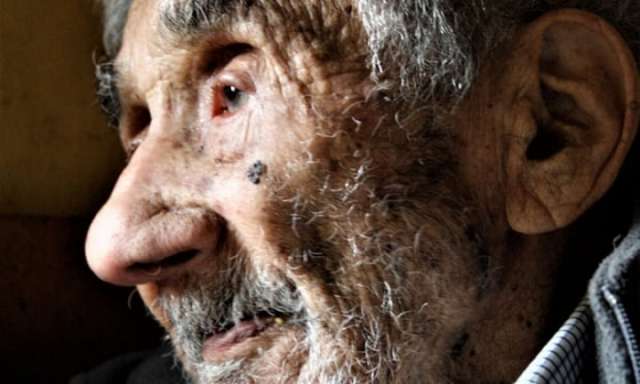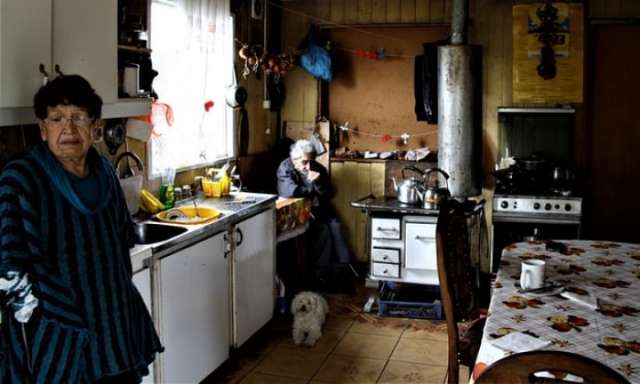“He was 99, I didn’t think he’d be around that much longer,” Ramírez recalls.
She is now 85, and her long-term guest, Celino Villaneuva Jaramillo, is 121 – very probably the world’s oldest man.
Born in 1896 – a year after George VI, and four years before the current Guinness-listed oldest person, Nabi Tajima – Jaramillo lost his birth certificate in the same house fire that made him destitute 20 years ago.
But the birth date on his Chilean identity card is 1896, and no one in Chile up to the president and justice minister (who personally delivered his renewed ID card in 2016) doubts his longevity.
“Checking our records, Celino Villanueva Jaramillo was effectively born on 25 July 1896 – and he’s still alive,” said Jacqueline Salinas, one of the heads of the demographic department at Chile’s office of statistics.

Jaramillo was born in the town of Río Bueno, around 30 miles south of the regional capital of Valdivia. It was the year of the first modern Olympics, when Utah became the 45th US state, Victoria became Britain’s longest-reigning monarch, and Ford produced its first motor vehicle.
Exact details about his youth are now hard to ascertain as communication with him is limited. All that’s known for certain is that he always found employment as an agricultural labourer, and for the past 30 years or so of his working life for a landowner called Ambrosio Toledo.
When Jaramillo turned 80, Don Ambrosio wished him well, patted him on the back and informed him he was being replaced by a younger field hand, and please could he vacate the estate house where he was living. The farmer had been paying Jaramillo’s contributions, so at least he had a small pension to live on.
He moved into the nearby coastal village of Mehuín, renting the ill-fated and rundown shack with a dirt floor and a fireplace in the middle, over which he would hang his fish to smoke (it was a loose ember from the fire that set the house alight). The local kids, now long grown up, remember him as an elf-like figure, due to his diminutive stature, always walking around the village with a sack slung over his shoulders. He supplemented his meagre pension growing vegetables and selling the surplus to the local shops.
After the accident that destroyed his home and belongings and almost took his life (he suffered slight burns and smoke inhalation), Ramírez took him in.
For his 115th birthday in 2011, the billionaire president, Sebastián Piñera, personally flew down to Valdivia accompanied by the minister of social development, Joaquin Lavin, their plane loaded with generous gifts for Chile’s oldest citizen.
Lavin presented Jaramillo with a certificate verifying the government’s recognition of his age, and told him he was a shining example of health and vitality to follow for all citizens and of the government’s commitment to Chile’s seniors.
Piñera presented him with a set of earphones, two crutches and a small wood-burning stove.
Sadly, no offer was made for the provision of specialist geriatric care to Chile’s and possibly the world’s oldest living inhabitant, which in the coming years would have proved a much kinder gift.

But in Chile such attention is the reserve of private healthcare patients, and Jaramillo, who is poor, is reliant on the inferior public system. A visit to hospital earlier this year because of pneumonia did not go well. Ramírez says he has not been the same since.
Now almost 90% blind due to his (operable) cataracts, 85% deaf and toothless since nobody remembers when, it is difficult to understand what he says, although the family that cares for him certainly do.
During a visit by the Guardian, Jaramillo sat at table gumming his way through some bread and cheese. Conversation was stilted due to his hearing difficulties. He cannot walk without a helping hand, but occasionally breaks into chat, recalling how his arm was broken as a baby by an aunt and how the chief of the Mapuche tribe had many women.
“Why didn’t you take one?” asks Ramírez. Jaramillo does not reply. He never married or had any children.
More about: #Chile















































